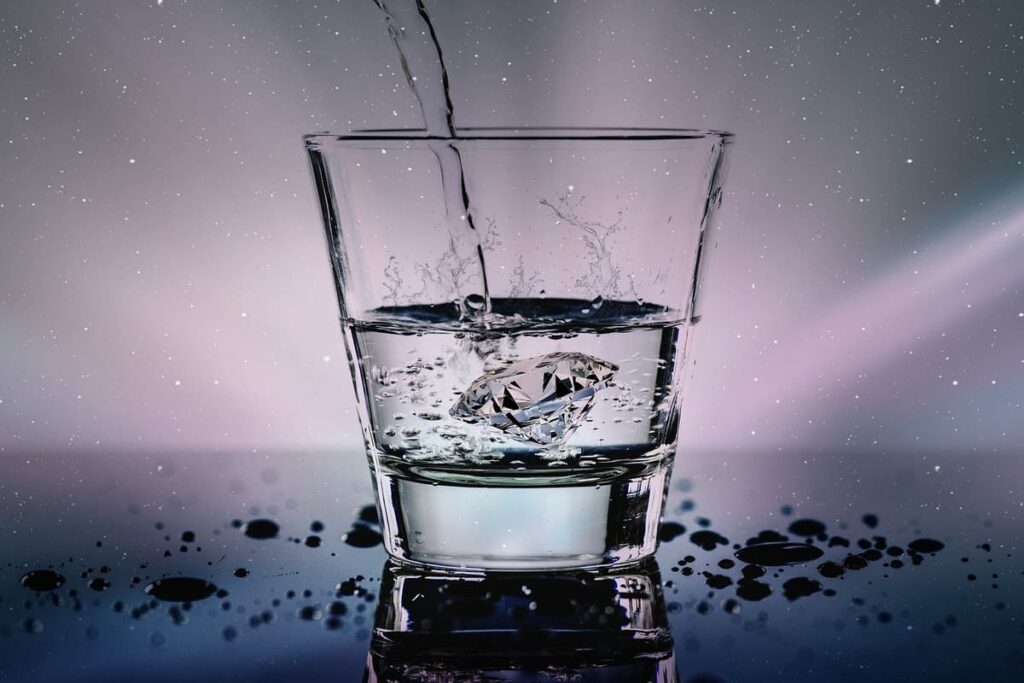Water is the foundation of life, and staying hydrated is crucial for overall well-being. The importance of drinking water cannot be overstated, as it plays a vital role in every bodily function. From aiding digestion to regulating body temperature, water keeps us healthy and energized. The health benefits of water include improved brain function, enhanced metabolism, and better skin health. But how much water to drink daily varies based on age, activity level, and climate. Ignoring hydration needs can lead to signs of dehydration, such as fatigue, dizziness, and dry skin. By understanding the role of water in our health, we can take simple steps to stay properly hydrated. Let’s explore why water is essential and how you can optimize your daily intake.
Why Drinking Water Is Essential for Your Health: Benefits & Hydration Tips🚰
Many body processes, such as digestion, circulation, and temperature regulation, depend on water. It keeps joints from becoming stiff and uncomfortable by acting as a natural lubricant. Maintaining adequate hydration guarantees that cells get the oxygen and nutrients they need to perform well. Additionally, water keeps the body free of toxins by facilitating the removal of waste through perspiration and urine. Vital organs like the kidneys and brain may have trouble functioning properly if they don’t get enough water.
Top Health Benefits of Drinking Enough Water💧
There are several benefits to staying hydrated, including increased energy and improved cardiovascular health. Maintaining a healthy stomach and avoiding constipation are two ways that drinking adequate water enhances digestion. Additionally, it improves brain function, which results in improved mood, memory, and focus. Additionally, by increasing metabolism and reducing appetite, water aids in maintaining a healthy weight. All things considered, being hydrated is essential for maintaining energy and avoiding health issues.
💙 Improves Brain Function and Mental Clarity
Water is essential for cognitive function, enhancing focus, memory, and mood. Dehydration can cause headaches, fatigue, and lack of concentration.
💪 Supports Digestion and Metabolism
Proper hydration aids in digestion by helping the body break down food and absorb nutrients efficiently. It also prevents constipation and bloating.
🔥 Aids in Weight Loss and Appetite Control
Drinking water before meals helps control hunger and calorie intake. It also boosts metabolism, making it easier to burn fat.
❤️ Keeps the Heart and Circulatory System Healthy
Water supports heart function by maintaining proper blood circulation and reducing strain on the cardiovascular system.
🌿 Detoxifies the Body and Flushes Out Toxins
Water helps the kidneys filter toxins and remove waste, preventing harmful buildup in the body.
How Much Water 💧Should You Drink Daily?
Staying properly hydrated is essential for overall health and well-being. The U.S. National Academies of Sciences, Engineering, and Medicine recommends an average daily water intake of 11.5 to 15.5 cups (3–4 liters) from both beverages and food sources. However, individual needs vary based on factors like physical activity, climate, age, and certain medical conditions. Increased sweating from exercise or hot weather demands a higher water intake to maintain optimal hydration. As we age, our natural thirst mechanism weakens, making it even more important to consciously drink enough fluids. Monitoring urine color—aiming for a pale yellow shade—can serve as a simple hydration indicator. While water is the best source, other fluids like herbal teas, milk, and water-rich foods also contribute to daily intake. Limiting excessive caffeine and alcohol helps prevent dehydration. If unsure about your hydration status, consulting a healthcare professional or registered dietitian can provide personalized guidance.
Signs of Dehydration and How to Prevent It💧
Severe dehydration poses a major health danger since it can result in disorientation, a fast heartbeat, and even fainting. Because dehydration impairs brain function and energy levels, fatigue and irritability are also typical symptoms. Skin may become drier, less elastic, and more prone to premature aging when the body doesn’t get enough water. Particularly in hot weather or when exercising, decreased perspiration and overheating can happen, raising the risk of heat exhaustion. Maintaining enough circulation and avoiding blood pressure swings require drinking plenty of water. Include foods high in water, such as watermelon, oranges, and cucumbers, in your diet to guarantee that you are getting enough water.
You can keep your water consumption steady by using hydration-tracking apps or setting reminders. Drinking water throughout the day is made simpler by carrying a reusable water bottle. To restore fluid balance, think about drinking electrolyte-rich beverages if your symptoms of dehydration linger. You can prevent the negative consequences of dehydration and promote general well-being by prioritizing your hydration.
Best Tips to Stay Hydrated Throughout the Day💧
Maintaining general health, energy levels, and cognitive function all depends on drinking enough water. Simple techniques can help you stay on track, even though the recommended daily intake of water varies depending on factors including age, climate, and activity level. Drink a glass of water first thing in the morning to boost metabolism and replace lost fluids. Keep a reusable water bottle with you for convenient access, and take frequent sips throughout the day. To further increase hydration, include foods that are high in water, such as leafy greens, cucumbers, and watermelon. Drinking water infused with berries, mint, or lemon adds taste and makes staying hydrated more pleasurable.
You can determine your level of hydration by keeping an eye on the color of your urine, aiming for a light yellow hue. The optimum source of fluid consumption is water, but other options include milk, herbal teas, and electrolyte-rich drinks. Dehydration can be avoided by limiting excessive alcohol and caffeine consumption. You may easily maintain optimal hydration and promote long-term health by forming these easy habits.
Does Coffee and Tea Count Towards Daily Water Intake?💧
Coffee and tea actually help you stay hydrated, despite what many people think. Although caffeine has a slight diuretic impact, the body does not become noticeably dehydrated. When consumed in moderation, these drinks support fluid balance. Because they don’t contain caffeine, herbal teas in particular are great for staying hydrated. However, it is not advised to only consume caffeinated beverages; instead, the major source of hydration should continue to be plain water.
The Best Times to Drink Water for Maximum Benefits💧
Water can be more beneficial in the body if it is consumed at the appropriate periods. Drinking a glass of water first thing in the morning aids in detoxification and speeds up metabolism. Water consumption before meals promotes better digestion and less overeating. Muscle cramps and dehydration can be avoided by drinking water prior to, during, and after exercise. Water consumption before bed promotes nighttime recovery, but too much of it might cause sleep disturbances. Appropriately timing your water consumption guarantees improved health and hydration.
Can You Drink Too Much Water? Understanding Water Intoxication💧
We frequently hear how important it is to drink lots of water. However, did you realize that excessive water consumption might have negative health effects?
Consuming too much water might strain your kidneys and lower your blood’s salt levels. Hyponatremia or water intoxication are other names for the illness. This can result in swelling as water enters cells, including brain cells. Many symptoms, such as the following, can result from hyponatremia:
- Headache
- Nausea or vomiting
- Fatigue
- Confusion
- Muscle cramping or weakness
Although they are uncommon, severe cases might result in convulsions, unconsciousness, or even death. A radio show competitor who participated in a water-drinking competition and reportedly consumed about two gallons of water over the course of two hours died from hyponatremia in 2007. ctress Brooke Shields reportedly claimed that drinking too much water had caused a grand mal seizure.
How to Make Water More Enjoyable: Infused Water Ideas💧
Try flavored water to add some flavor to your hydration if you find plain water dull. In addition to improving flavor, adding lemon, cucumber, or mint has other health advantages. Ginger, oranges, and berries can also be used to make antioxidant-rich and revitalizing water infusions. For a more robust flavor, let the ingredients soak for a few hours. It is convenient to carry flavored water with you throughout the day when you use a fruit-infuser bottle. Hydration is made fascinating and pleasurable by experimenting with various combinations.
Conclusion💧
Life depends on water, which is also essential for preserving general health. Staying hydrated has several advantages, from improving digestion and weight loss to improving brain function. You can maintain appropriate hydration levels by knowing how much water to drink each day and how to spot the symptoms of dehydration. Hydration is made easier by simple practices like carrying a water bottle, drinking water at strategic times, and experimenting with infused water recipes. Even though everyone has different water demands, it’s important to pay attention to your body to prevent both overhydration and dehydration. You may improve your energy, concentration, and general well-being by making drinking water a priority. Make water a vital component of your everyday routine and take a sip!
Author : Ghndoumy Mostafa


